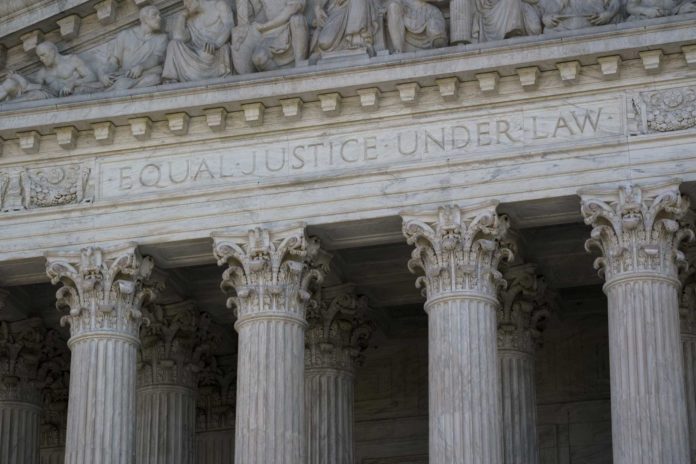
On August 3, 1982, Georgia police officer Keith Torick entered Michael Hardwick’s bedroom at 3 a.m. to serve a warrant for a $50 infraction.
Tossing a beer bottle in a trash container outside a gay bar, which led to a public drinking charge.
When Torick entered Hardwick’s bedroom, Hardwick was engaged in sexual relations with another man. Torick arrested Hardwick and charged him with sodomy. Under Georgia law at the time, any persons engaging in non-procreational sex could be sent to prison for up to 20 years. This included married heterosexual couples.
Not surprisingly, the law was rarely enforced.
Although the local district attorney elected not to pursue the case, Hardwick was persuaded by the ACLU to challenge the constitutionality of Georgia’s sodomy law. He was joined in the lawsuit by a heterosexual couple who claimed that they wished to engage in non-procreational sex without the fear of arrest.
That case, Bowers v. Hardwick, was decided 35 years ago this week, when the United States Supreme Court issued one of the most infamous decisions in its history, essentially criminalizing the sexual practices of gays, lesbians and bisexuals.
A majority of the justices decided not to consider the heterosexuals’ claim, seemingly because the law had almost never been used against heterosexuals. Instead, they recrafted the issue into whether the Constitution protects homosexual sodomy. This all but pre-ordained the outcome.
The majority determined that such conduct is not protected, despite the court’s privacy jurisprudence. It then upheld Georgia’s sodomy law on the grounds that the state legislature, as representatives of the people of Georgia, had enacted it.
The decision had far-reaching consequences for the gay community. It was used to justify keeping homosexuals from serving in the military, from adopting children and from having the right to not be fired because of their sexual orientation. As the late Justice Antonin Scalia noted, if you can criminalize the conduct of the entire class of gay people, states can certainly deprive them of non-discrimination and other protections.
It took 17 years to overturn Bowers, when Justice Anthony Kennedy wrote the powerful opinion of Lawrence v. Texas that expressly struck down all existing sodomy laws.
By ending the criminalization of homosexuals as a class, gay, lesbian and bisexual persons were able to pursue other legal protections, culminating with the right to marry. In the opinion, Kennedy made it clear that he viewed the Constitution as an evolving document that protects the dignity of various classes of people, including homosexuals.
With Kennedy’s retirement in 2018 and Justice Ruth Bader Ginsburg’s death last year, however, the Supreme Court has become far more conservative, particularly with the addition of three Trump-appointed justices.
Given the current make-up of the Court, might a Bowers-like decision be possible?
While the justices likely do not have the burning desire to re-criminalize private, consensual sexual behavior, such a result is certainly possible.
The newer conservative justices have expressed their fidelity to originalism and textualism. Several have openly rejected Kennedy’s view of an evolving Constitution. These justices are far more likely to view fundamental rights as only those rooted in the nation’s history and tradition, constraining new constitutional protections. Whether we return to Bowers or not, it seems clear that the current Supreme Court is unlikely to interpret the Constitution in a way that expands the rights of LGBTQ persons. The other branches of government will have to pick up that mantle.
Indeed, we recently caught a glimpse of the Supreme Court’s rightward tilt regarding LGBTQ rights in the case of Fulton v. The City of Philadelphia. The court ruled that the city could not require Catholic Social Services to abide by the local anti-discrimination law that would have required placing foster children with same sex couples. While the majority upheld religious liberty rights on the narrowest of grounds, three of the justices signaled a desire to create a far more expansive interpretation of religious liberty, one that could subjugate LGBTQ anti-discrimination protections to religious liberty claims.
Only time will tell how far the Supreme Court will go in constricting the existing rights of LGBTQ persons. In the meanwhile, Bowers should remind us of how much there is to lose.
Larry Levine is a law professor at University of the Pacific’s McGeorge School of Law where he teaches sexual orientation/gender identity law.









